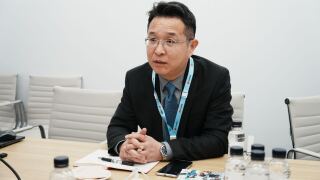Mobile payment service Orange Money has added to its African operations in a further three countries as it develops its money-based services in the region.
Mobile-based banking services will be available in Senegal, Mali and Madagascar, adding to Orange Money’s services in the Ivory Coast, which were launched in 2008. Mobile banking has significant growth potential in the continent considering only 10% of the population holds a bank account. In contrast, approximately one third of people have access to a mobile phone in Africa, according to Orange.
The service does not require users to hold a bank account and it is available to all Orange customers. “Mobile money is a set of services which sits between telecoms and banking and there are many markets where this makes sense,” says Philippe Millet, senior vice president at Orange Money operations. “There is no development of these services in countries where there are very low banking penetration rates, even as low as 2%. These same countries have high mobile penetration rates and are in need of banking services. Institutions are also keen on mobile money. They can use the services to pay wages and subsidies to people. Non-governmental organisations, the World Bank, government offices and private companies use us so they do not have to manage cash. They know it is safe, they know it is transferred and it is there.”
Orange Money has established a range of partnerships with local banks, including BNP Paribas in west Africa. Using banking systems, Orange can guarantee the safe issue and transfer of electronic money. The service enables users to deposit and withdraw money, purchase call credit, pay for retail transactions and pay bills. Orange has ambitions to develop the offering further by delivering micro finance initiatives in Africa, including issuing insurance services and enabling international money transfers for its users – ultimately adding significant value to the service.
Millet has worked at France Telecom Orange for seven years, and was formerly head of international wholesale at the company until March this year. His new role requires Orange to adapt from a traditional telecoms environment to the stringent laws and selective process involved in providing banking services.
“Mobile money means we need to operate within the framework of the banking system,” says Millet. “Even though we are not a bank we need to be compliant with the rules and regulations which are different from the ones we are used to. We need to know a lot more about our customers now. There are a series of checks and controls issued to ensure people requiring the service are customers who are not on the blacklist for the central bank because of money laundering, financing or even terrorism.”
So far the major success story of mobile money in Africa is Kenya, where the M-Pesa service, developed by Safaricom and Vodafone, has built up approximately nine million users on its platform in the three years since it was launched. Other players are active on the continent, South African operator MTN launched mobile money operations in Ghana, Nigeria and the Ivory Coast in Q3 2009, and has expressed its ambition to roll out services across Africa and the Middle East.
Juniper Research notes the potential for consumer demand in the market to increase globally, and the research company anticipates over 500 million people will be using mobile money services by 2014, principally in developing countries. According to Juniper, mobile money development is fuelled by the idea of financial inclusion, an aspect of life in underdeveloped regions that large proportions of the population have not been a part of. It is also safer to transfer money back to villages for a worker in a city, and for business transactions to be conducted through mobile banking than to deal in cash.
“The need to move money around in developing countries has, until now, been fulfilled by older and more traditional routes. If you consider the days before M-Pesa services launched in Kenya you will find that people made payments by the bus. The bus would be the transfer mechanism for money,” says Howard Wilcox, senor analyst at Juniper Research. “The whole premise of mobile money is enabling people who did not previously use the banking system to benefit from financial accounts, so the bank account is on the phone. To do that you need to have the means of distributing cash or enabling people to pay cash in the account around the whole country. It is no use only to operate only in the capital city. There needs to be a distributed network of local agents and this can be tacked on to another business like a supermarket, a petrol station, a post office or a retail chain that has an extensive set of branches established around the country.”




